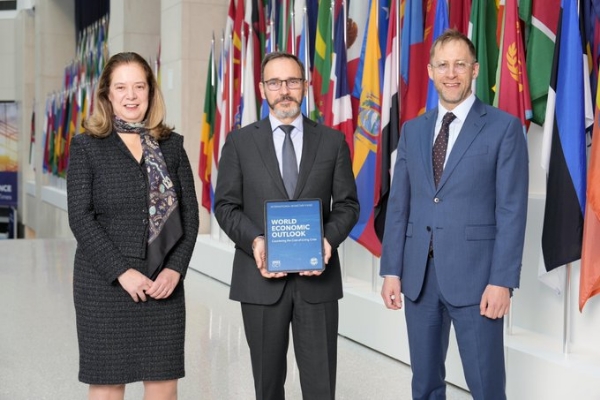India to be the fastest growing major economy in 2023: IMF
Total Views |
New Delhi, Oct 13: The International Monetary Fund (IMF) on Tuesday, October 11, revised its projection of India's economic growth in 2022 to 6.1 percent, joining other international agencies that have also cut India's growth forecast.

Despite the revision, India's growth is projected to be the fastest among major economies. Behind India, were China (4.4%), Saudi Arabia (3.7%), and Nigeria (3%). The US is projected to grow at 1% while Russia, Italy, and Germany were forecast to suffer degrowth.
In July, the IMF said that India would grow at 7.4% in the present fiscal that started in April 2022, which was 0.8% lower than the 8.2% projection in January. India's growth in 2021-22 fiscal (April 2021 to March 2022) was pegged at 8.7%. The IMF's latest forecast came in its annual World Economic Outlook report on Tuesday. The report reflected a weaker-than-expected outturn in the second quarter and more subdued external demand. The IMF also forecasted a global slowdown to 3.2% in 2022 and 2.7% in 2023 from the 6% recorded in the previous fiscal year. This is the weakest forecast since 2001 and the Covid-19-inflicted crisis. The IMF report also revealed significant slowdowns for larger economies like the US and China. Economic Counsellor and the Director of Research of the IMF Pierre-Olivier Gourinchas said: "The global economy continues to face steep challenges, shaped by the lingering effects of three powerful forces: the Russian invasion of Ukraine, a cost-of-living crisis caused by persistent and broadening inflation pressures, and the slowdown in China." While the growth of the three largest economies the United States, the European Union, and China over a third of the Global economy is expected to contract in the next fiscal. "In short, the worst is yet to come, and for many people, 2023 will feel like a recession," Gourinchas wrote in his foreword to the report.
China's frequent lockdowns and other aspects of its zero-Covid policy, combined with a slowdown in the real estate sector, have taken a toll on the economy, especially in the second quarter of 2022.